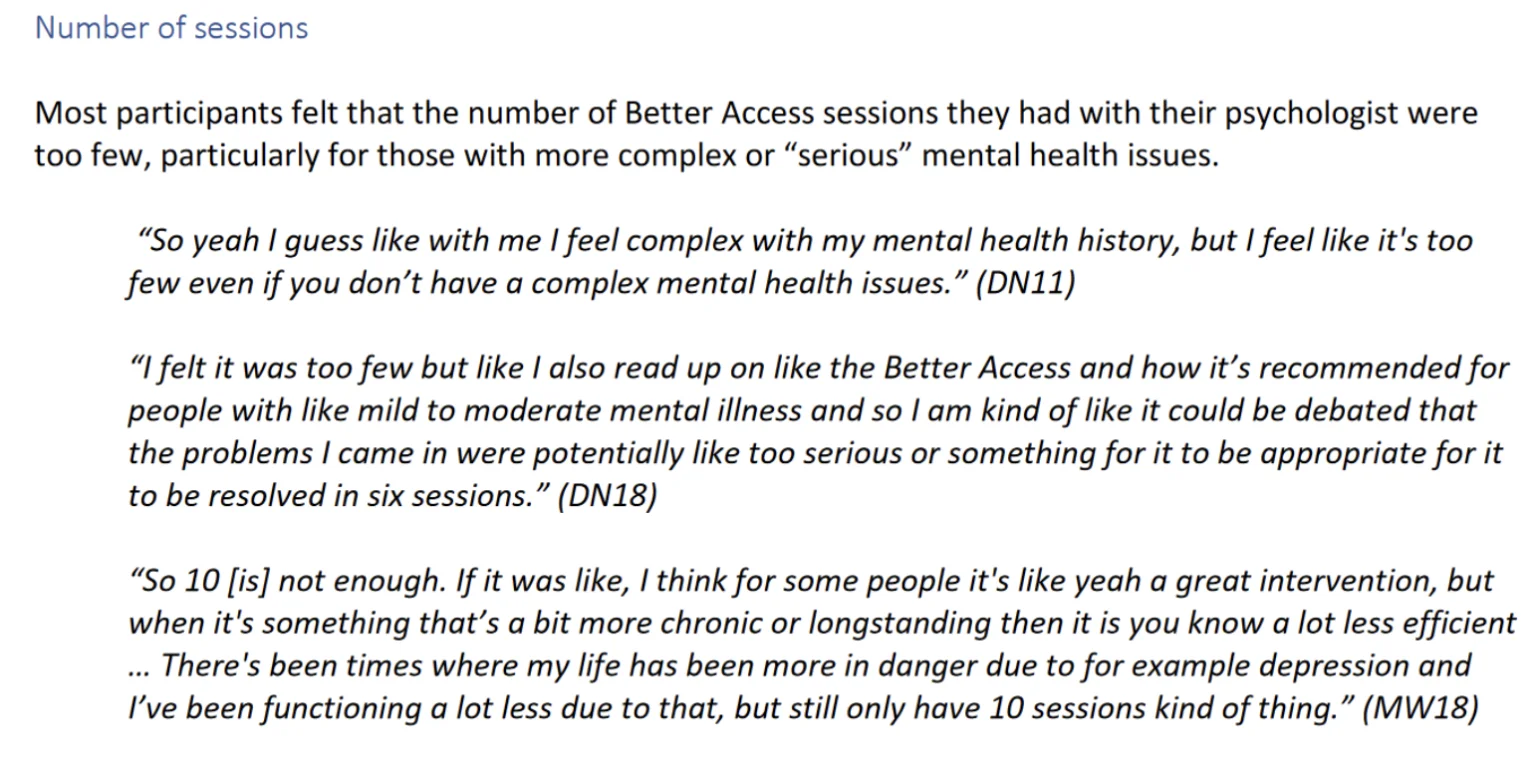This news article originally appeared in Croakey Health Media and has been republished with permission.
Patient demand for psychology services remains high, but people increasingly cannot afford treatment due to cost of living pressures and slow progress in mental health system reform.
Current cost of living pressures are having a pervasive effect on all Australians who are too frequently having to choose between everyday essentials and better mental health.
The Federal Government has a responsibility to address this issue to ensure a nationally consistent and equitable mental health system that promotes access and affordability for all Australians, and this includes the Better Access program.
The community has told us it wants more investment in psychology services right now. Further investment into the sector – including reinstating the 20 Medicare-subsided sessions for more complex mental health conditions – would make a huge positive impact for people who need psychological care.
Indeed, the initial evaluation review found that Better Access services were effective and recommended the continuation of 20 sessions.
See some of the consumer comments included in the final report from independent Better Access review:
 Number of sessions
Number of sessions


Most participants felt that the number of Better Access sessions they had with their psychologist were too few, particularly for those with more complex or 'serious' mental health issues.
"So year I guess like with me I feel complex with my mental health history, but I feel like it's too few even if you don't have a complex mental health issue" (DN11)
"I felt it was too few but I also read up on like the Better Access and how it's recommended for people with like mild to moderate mental illness and so I am kinf of like it could be debated that the problems I cam in with were potentially like too serious or something for it to be appropriate for it to be resolved in six sessions" (DN18).
"So 10 (is) not enough. If it was like, I think for some people it's like yeah a great intervention, but when it's something that's a bit more chronic or longstanding then it is you know a lot less efficient... There's been times where my life has been more in danger due to for example depression and I've been functioning a lot less due to that, but still only have 10 sessions kind of thing." (MW18)
Several participants noted that even if they had accessed the additional 10 sessions the total number of sessions was insufficient for them.
"It's a great thing that it exists, because without it I wouldn't have been able to access the amount of care that I have been. And even then I have to say though it's not enough, even with the 20 sessions it's not enough."
"Umm - I think that like with the 20 because of COVID I think that's a decent number - I would personally still like more but I know that the extra sessoins are ending soon and I think they were necessary before the pandemic and they'll still be necessary afterwards you know like depends on the person's level of illness but unless you've got NDIS or are somehow severely ill but also working a well-paying job you are not going to be able to afford the support you need." (MW08)
Several participants reported that they used up all their Better Access sessions during the year and continued to see their psychologist through other means:
"It was too few, I'm continuing now, even though I've gone past the limit because it's still helping me, and while it's still helping me I will go on with it" (MW09).
The initiatives announced in this year’s Federal Budget were slated as helping to enable psychologists to see more high needs patients. But 10 sessions is not enough to provide effective treatment to high need patients. Providing 20 sessions for these patients can help us to ensure effective treatment.
We feel that the Government’s response to this report is just another missed opportunity to enhance the mental wellbeing of all Australians, despite the APS and Australian people repeatedly raising the red flag about these issues.
This is a point in our nation’s history when we need to double down on psychological support and investment to create a mentally resilient community.
Dr Catriona Davis-McCabe is the President of the Australian Psychological Society.
Croakey Health Media